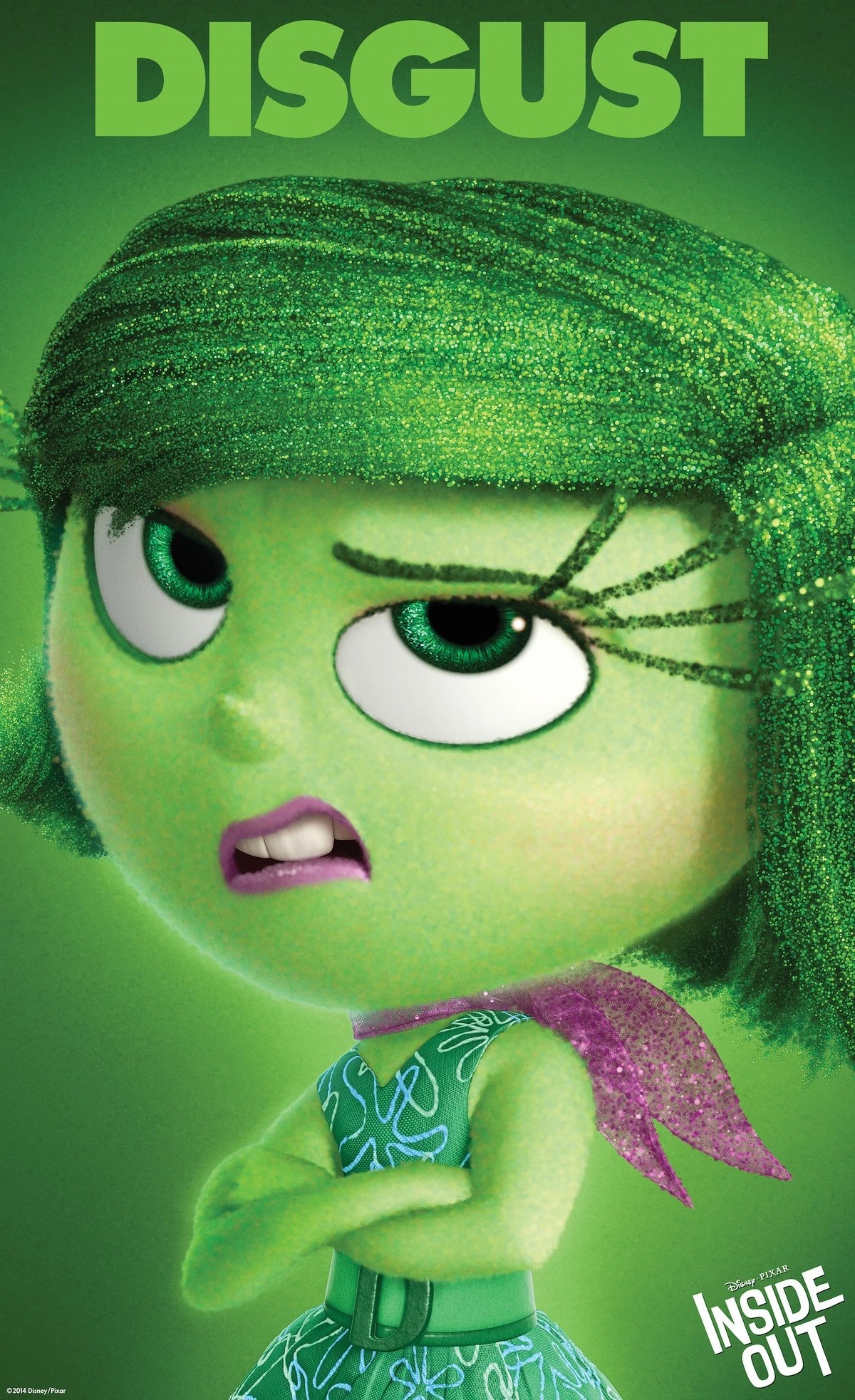Inside Out Disgust is a fascinating emotion that plays a crucial role in our daily lives, often influencing our decisions and interactions. This complex feeling can arise from various situations, and understanding its origins and implications can help us navigate our emotional landscape. The animated film "Inside Out," produced by Pixar, brilliantly personifies this emotion through the character of Disgust, who helps the protagonist, Riley, navigate the tricky waters of adolescence. By examining the essence of this emotion, we can gain valuable insights into how it shapes our behavior and responses.
Disgust is not merely a reaction to unpleasant smells or sights; it is a multifaceted emotion that can also encompass moral and social judgments. The film illustrates how Disgust protects us from things that could harm us, both physically and emotionally. By unpacking the layers of inside out disgust, we can learn how it affects our relationships, choices, and even our self-perception.
As we delve deeper into the concept of inside out disgust, we will explore its various dimensions, including its role in personal development, social dynamics, and cultural influences. Understanding this emotion can empower us to manage it more effectively, leading to healthier interactions and a more balanced emotional state.
What is the Role of Disgust in Our Lives?
Disgust serves several important functions in our lives, including:
- Protection: It helps us avoid harmful substances or situations.
- Social Cohesion: Disgust can strengthen group boundaries by defining acceptable behavior.
- Moral Judgment: It plays a role in our sense of morality and ethics.
Biography of Disgust from Inside Out
Disgust is an animated character in the film "Inside Out," directed by Pete Docter and Ronnie del Carmen. Voiced by Mindy Kaling, Disgust is one of the five core emotions that guide Riley's reactions and decisions. The character is portrayed as a savvy and opinionated figure who is determined to protect Riley from anything deemed unworthy or harmful.
| Attribute | Details |
|---|---|
| Name | Disgust |
| Voice Actor | Mindy Kaling |
| Role | Core Emotion |
| Film | Inside Out |
| Year Released | 2015 |
How Does Inside Out Disgust Influence Emotional Development?
Disgust plays a significant role in emotional development, especially during formative years. As children grow, they begin to understand and categorize their experiences through the lens of different emotions, including disgust. This understanding helps them navigate social interactions and establish their boundaries.
What are the Implications of Disgust in Social Interactions?
Within social contexts, inside out disgust can lead to both positive and negative outcomes. For example:
- It can foster closeness among like-minded individuals by creating shared values.
- Conversely, it can lead to exclusion or ostracization of those perceived as different.
Can Disgust be Considered a Universal Emotion?
While disgust manifests similarly across cultures, its triggers can vary widely. For instance, certain foods may be acceptable in one culture but repulsive in another. This raises an interesting question: is disgust a universal emotion or culturally specific?
How Can We Manage Inside Out Disgust Effectively?
Managing the emotion of disgust involves recognizing its triggers and understanding its purpose. Here are some strategies to help:
- Identify personal triggers and reflect on why they elicit disgust.
- Practice empathy to understand others' perspectives and experiences.
- Engage in open conversations about feelings to reduce stigma.
What Can We Learn from Inside Out Disgust?
Ultimately, the character of Disgust in "Inside Out" offers valuable lessons about the complexity of our emotions. By embracing and understanding inside out disgust, we can foster a more nuanced view of our emotional responses and develop healthier relationships with ourselves and others.
How Does Inside Out Disgust Relate to Mental Health?
Disgust can have profound implications for mental health, influencing how individuals cope with trauma, anxiety, and stress. Addressing feelings of disgust in therapy can lead to healing and growth, highlighting the importance of acknowledging and processing this emotion.
What Are the Future Implications of Understanding Disgust?
As we continue to explore the intricacies of emotions like disgust, we can better understand their role in shaping our identities and relationships. This knowledge can pave the way for more compassionate interactions, both personally and socially, as we learn to navigate the complex web of human emotions.
You Might Also Like
Exploring The World Of Beans Even StevensUnfiltered Humor: A Deep Dive Into The Katt Williams Interview
Cornucopia Of Comfort: The Fruit Of The Loom Saga
Unlocking The Elegance Of French Tips Nails
Discovering The Best Pizza Near Me: A Culinary Adventure
Article Recommendations
- Are Jenny Mccarthy And Donnie Wahlberg Still Married
- Dave Franco James Franco
- Is Ellen Degeneres Married
- Ryan Paevey
- Itscarlyjane Only Fans
- Yumi Eto Leaked
- How Did Ariana Rye Die
- Halsey Parents 4576996
- George Conway Net Worth Forbes
- Amber Heard Toes


